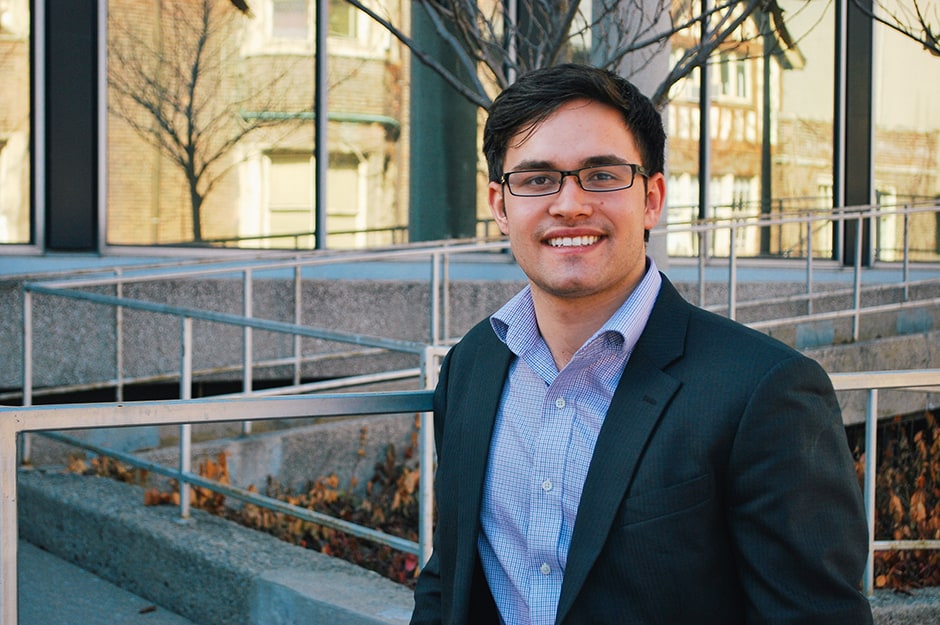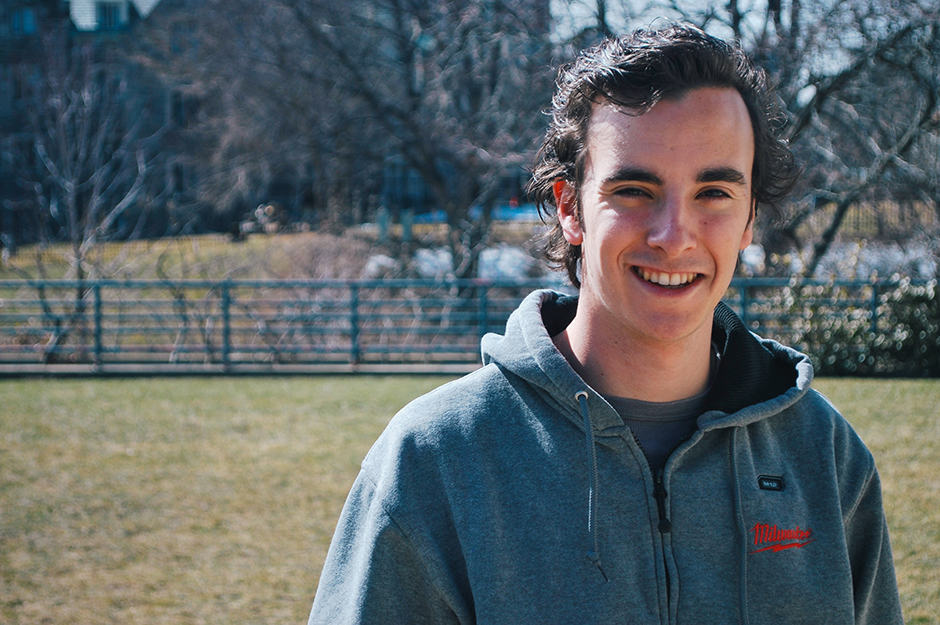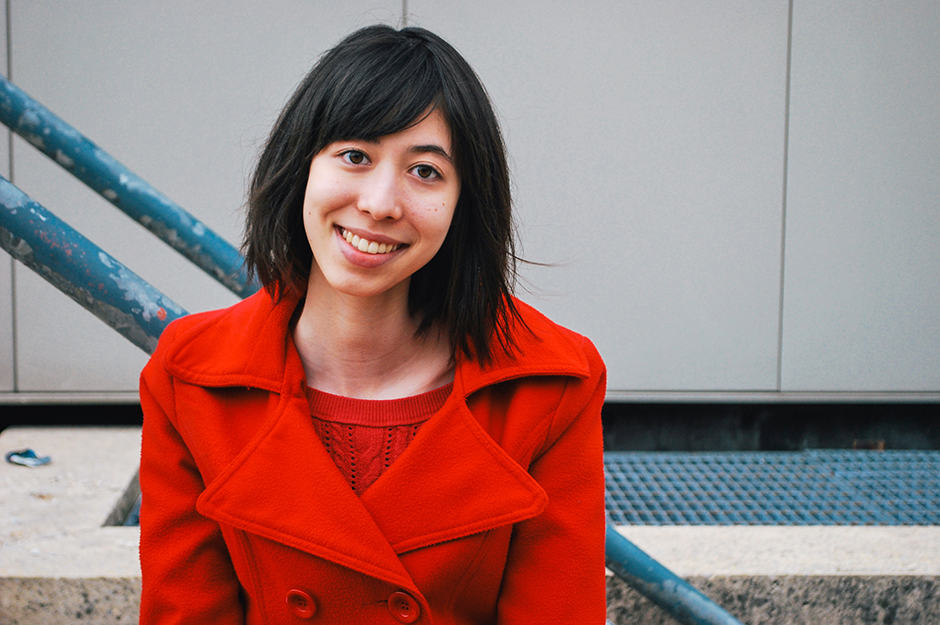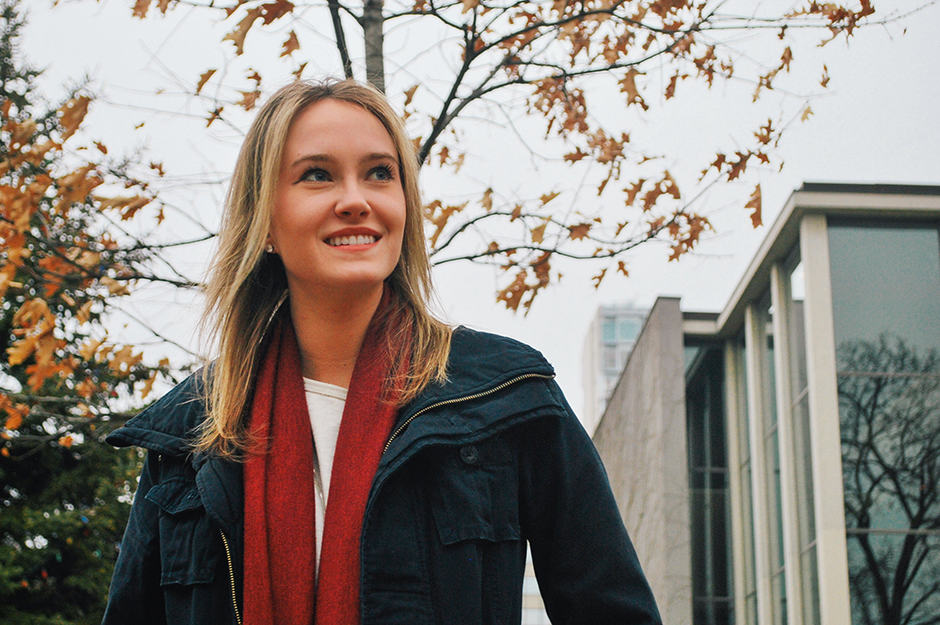“The professional faculties are so intensive and unique and separate from the Arts and Science shenanigans that they’re kind of separate worlds,” explains Mathias Memmel, co-president of the Faculty of Music Undergraduate Association, when asked about the Arts and Science community’s relative lack of knowledge of U of T’s professional faculties, such as Music and Architecture. The Varsity spoke with several students in the music faculty to learn more about their lives as students tucked between Philosopher’s Walk and U of T Law, and how their studies will shape their imminent entry into the “real world.”
Third-year, voice performance
Double major, political science & computer science
Choosing music
“When I applied to university, I was all over the map. I applied to [international relations], [political science], a bunch of commerce programs, and music. I got into all my programs but felt that going to business school was something I could do at any point in my life, whereas music was time sensitive. It’s the type of thing that you have to do physically, when you’re younger. That training has to start at an earlier age. So that was kind of the rationale [behind my decision].”
Favourite class
“In performance, within classical music, you have these different genres — German song, French song, Italian song, and such. We’re given a master class for each of those so they kind of end up all smushed together, and collectively they’re wonderful.”
After graduation
“My plan is probably to go to law school… it’s a way of bridging computer science and code and the music industry, especially with contract and copyright law.”
Lessons learned
“You are responsible for learning your music. You’re responsible for integrating your technique. You also learn to work in chamber music environments. In an ensemble situation, you can get away with not doing anything so it’s a good test of character to see whether or not you are motivated and self-disciplined enough to focus and bring your best effort forward despite working in a team environment.”
Ideal career
“So long as I’m in a situation where I can still performh and still influence what’s happening in the arts community and contributing to that and fostering future growth there, that’s I guess the dream.”
De-stress music
“I love Elgar’s ‘Enigma Variations’.”
Fourth-year, music education, instrument focus: piano
Choosing music
“[In high school] I loved music, but I wasn’t as good as other people. I got to Grade 12… and I said to my parents, ‘I don’t know what to do. I love teaching, I love music, I’m writing songs all the time now.’ So I took a year off because I was pretty bad at piano. I got relatively good and got in here. I was like, ‘U of T has a reputation, it’s really cool, [I] met some of the professors, I want to study there and get good’.”
Favourite class
“Multi-modal education. [It] focuses on different educational music approaches. Using improv, songwriting, technology in the classroom because that is something that’s seriously lacking in all the basic education courses at U of T.”
After graduation
“I got accepted to U of T’s music tech program. Next year is the first year that it’s happening. It’s perhaps more college-related, more practical. There’ll be studio time, writing music for film. Personally, I’m taking a bit of my composer side and tech side, and saying this is going to allow me to write some music and continue to work with other people here who are really good.”
Lessons learned
“I think you learn to interact with people at a whole other level, which becomes the music business because it’s all about your portfolio and being able to sell who you are, what you do, your music, whatever lines up with that. So we’ve kind of been set up to be able to do that.”
Ideal career
“I’m still sort of open. I love teaching so I’m always going to teach and no matter how much production I do or how far I go with recording other people, I’ll always want to teach.”
De-stress music
“James Blunt, ‘Into the Dark’. Or I write my own music.”
Fourth-year, comprehensive (courses in theory, musicology, performance, and education), instrument focus: flute
Choosing music
“Music has been a big part of my family life since I was little. I sort of picked up the flute in middle school band and ended up just carrying on with it.”
Favourite class
“Contemporary music ensemble course. I really like contemporary music. It’s the field that I’d like to focus on in my studies after U of T. It’s been loads of fun…We do a couple concerts a year and it’s all more recent repertoire.”
After graduation
“Hopefully graduate school in the fall. I’ve applied to programs in musicology, focusing on contemporary music.”
Lessons learned
“[It] teaches you a lot about yourself and teaches you how to be the best version of yourself because it requires so much of your own commitment and you have to put so much of yourself into [your] work… I think you’d be hard pressed to find someone who comes out of the program and doesn’t know themselves [and their work ethic] a little better.”
Ideal career
“An emerging truth about having a degree in this kind of field is that it’s not always just a one-job situation… I would like to be involved in a couple [of] different organizations… I’m going to keep playing and practicing. I also work for a music magazine right now so I have a background in journalism and editorial work that I’d like to continue to work with in some capacity. I think not having concrete plans can be kind of a good thing.”
Fourth-year, history/theory, instrument focus: piano
Choosing music
“I applied [to] life sciences but in the middle of Grade 12 I thought, music’s kind of fun, my sister didn’t have such a good time in life-sci, so why don’t I try applying to music? I got in and thought, well I might have more fun in music than life-sci.”
Favourite class
“Composing for film. We partner with animators at Sheridan and our class provides the music for their short films. It’s a really cool opportunity.”
After graduation
“[I’m] thinking of medical school, but I will always want to keep and use these musical skills. I’ve heard of a lot of people who go into medicine and music and it seems to work out well for them. There’s a cool field called music therapy which shows the effects of music on patients and that might be something I’d be interested in further down the road.”
Lessons learned
“Being in an environment where you have a lot of deadlines and you feel a lot of pressure but you learn to meet your goals even when it seems impossible.”
Ideal career
“To work four days a week as a doctor but still compose on the side. Basically I would work in the medical field but have time to explore my other passions as well.”
De-stress music
“Renaissance music, such as Josquin des Prez’s ‘Ave Maria Virgo Serena’, or ‘Flow My Tears’ by John Dowland.”
Fourth-year, music education, instrument focus: piano
Choosing music
“[It was a] very difficult process. My parents started me in piano when I was six and I used to go to Rochester every two weeks to study at Eastman [School of Music]. I was serious about piano and getting my qualifications. I played in Kiwanis festivals and always did well so music just seemed like a natural thing to follow.”
Favourite class
“Music in dance in the 20th Century. It’s very interesting… A lot of [ballet] music is written with these constraints imposed by the choreography that non-ballet composers aren’t used to.”
After graduation
“Taking a year off, looking for internships and maybe return to school for more qualifications or get a job in human resources.”
Lessons learned
“[It] teaches you self-discipline and time management. You have to figure out how your entire day will work. Being a musician, in an ensemble, you also have to work with others. There may be different views about how [a] piece should be but you have to get along with other people and figure out how to get what everyone wants.”
Ideal career
“Combining my love of music with sales and marketing… or get into arts administration. Like working as an administrator for the COC [Canadian Opera Company], scheduling tours and promoting. I’m thankful I did my undergrad in music because no matter how old I am, I can always teach piano.”
De-stress music
“Frédéric Chopin, Nocturne Op. 27 No. 2 in D-flat Major”






